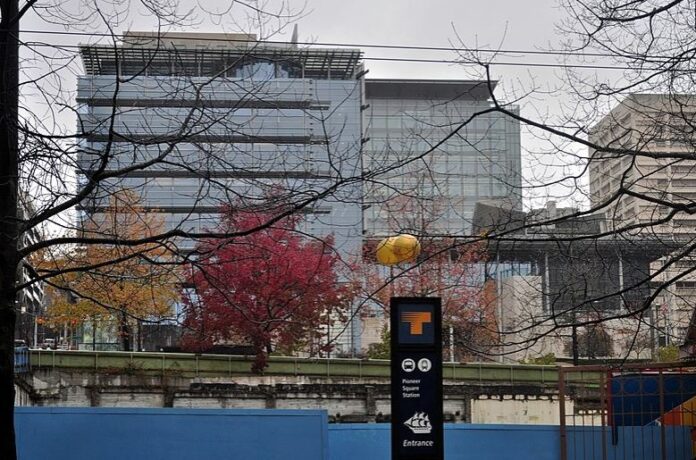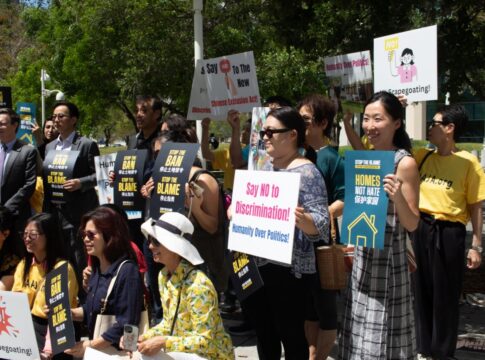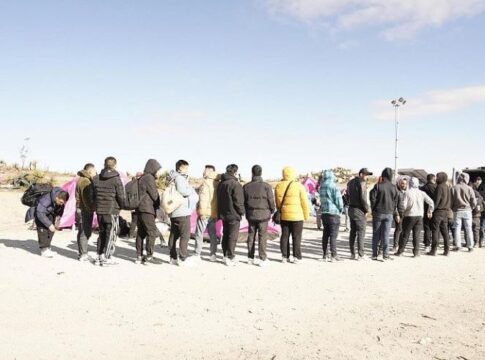By Sunita Sohrabji, Ethnic Media Services
A controversial bill now before Seattle’s City Council has exposed a deep
fault line among Indians in India and here in the US. If passed, Seattle
would be the first city in the nation to ban caste-based discrimination.
Indian Americans remain divided over the issue, with hundreds of letters
both for and against the measure flooding council members’ offices.
More than 157 people assembled Feb. 14 to give their public comments
on the resolution proposed by council member Kshama Sawant. A vote
on the measure is scheduled for Feb. 20.
Supporters say caste-based discrimination — largely by other Indian
Americans — still exists at schools, universities, at the workplace, and
even in personal interactions. Opponents challenge the notion that caste-
based discrimination exists in the U.S. and contend that existing laws
already protect those who feel they have been discriminated against.
“This is our moment. Seattle will be the first city in the country to really
protect workers’ ability to complain to the city if they face
discrimination,” Thenmozhi Soundararajan, executive director of
Equality Labs, told Ethnic Media Services. “Companies lack competency
about caste equity: they are allowing significant discrimination and bias
to exist at their workplaces.”
LATEST STORIES
Seattle is home base for many tech giants, including Amazon and
Microsoft.
Soundararajan is the author of The Trauma of Caste, published by
Penguin Random House and released last November. Earlier last year, the
Dalit activist was invited to give a talk at Google. But Google employees
complained, saying Soundararajan was “anti-Hindu” and “Hindu phobic.”
The Dalits belong to what is considered the lowest category within
India’s traditional caste system. Members of the Dalit community have
long faced discrimination in India.
Soundararajan went to the top: Google chief Sundar Pichai, who is also
from India and is of the highest Brahmin caste. But her talk was canceled, nonetheless. Tanuja Gupta, who had invited Soundararajan to speak,
resigned in protest.
“These groups could have chosen to listen to the voices of the oppressed
and attempt to begin the process of healing. They did not, which tells me
that Google is content to ignore its caste problems,” said Soundararajan.
Maya Kamble, a member of the Ambedkar Association of North America
— named for the famous 20 th Century Dalit activist B.R. Ambedkar
— wrote a letter to Seattle City Council members supporting the
resolution.
She told Ethnic Media Services she had also faced direct workplace
harassment because of her caste. “An Indian manager I worked with at a
tech company in the Bay Area would always undermine me in meetings
or ignore what I had to say. My colleagues started to back me up.”
“One day, he said in front of all of them: ‘you better not touch this
project, because you are ill-fated.’
“I come from an untouchable background. We are told we are untouchable because we are ill-fated. So, he was clearly making a reference to my caste in front of my colleagues.
It really stung deeply,” said Kamble. “I never imagined that caste would
come back to me in this way in America,” she said, noting that she is an
expert in her field.
“I just want to work. I don’t want to fight every day,” said Kamble. “I’m
hopeful that this resolution will encourage Amazon to add caste as a
protected category in their sustainability code.”
But Aldrin Deepak, who is also Dalit, had a markedly different point of
view.
“I have lived in the U.S. for 35 years. I have never been asked ‘what caste
do you belong to?’” he said. “How do people know who is Dalit and who
is not? No one is giving out any certificates.”
Deepak is the IT Director at a local San Francisco Bay Area company.
“The friends who guided me along my career path are all Brahmins,” he
noted.
“This is a ridiculous issue meant to divide our community,” said Deepak.
Suhag Shukla, executive director of the Hindu American Foundation
(HAF), noted that the U.S. Constitution inherently guarantees protection
from discrimination based on race or nationality. “Existing laws that ban
discrimination based on national origin could arguably protect anyone
who has faced caste discrimination, which is very rare,” she told Ethnic
Media Services.
“This is perhaps the greatest civil rights challenge our community has
faced. It adds one more stereotype of Indians as racists. They are
dragging the politics of the subcontinent to the U.S. and pitting
communities against each other. This will impact our children and our
grandchildren,” said Shukla.
HAF has also sent a letter to Seattle City Attorney Ann Davison opposing
the resolution.
During the hour-long public comment period, city council members heard
from 50 people who overwhelmingly supported the measure. Several
Dalits shared their experiences of workplace discrimination, alleging they
were denied promotions and raises once their managers identified them as
lower caste.
Several speakers said they had immigrated to the U.S. to be free of the
oppressive caste system, but were disappointed to find that culture
prevalent in the U.S.
Pushpita Prasad, of the Coalition of Bay Area Hindus of North America
alleged that speakers who opposed the measure simply were not allowed
to speak during the public comment period. “Seattle is a very
accommodating city. But this resolution singles out a group of people. If
a law like this is passed, any human conflict can be weaponized as
discrimination,” she said.
In July 2020, a Dalit employee of Cisco, based in the San Francisco Bay
Area, filed a complaint with the Department of Fair Employment and
Housing, saying he was discriminated against by his Indian American
supervisors because of his caste.
The employee, who was not named, said he received lower wages and
fewer opportunities because of his caste. Moreover, his supervisors
allegedly mocked him, saying he had only got admission into the
prestigious Indian Institute of Technology because of India’s affirmative
action policies in support of members of lower castes.
DFEH dropped the case, but it is now scheduled to be heard by the
California Supreme Court.
AsAmNews is published by the non-profit, Asian American Media Inc. Follow us on Facebook, X, Instagram, TikTok and YouTube. Please consider making a tax-deductible donation to support our efforts to produce diverse content about the AAPI communities. We are supported in part by funding provided by the State of California, administered by the California State Library in partnership with the California Department of Social Services and the California Commission on Asian and Pacific Islander American Affairs as part of the Stop the Hate program. To report a hate incident or hate crime and get support, go to CA vs Hate.









